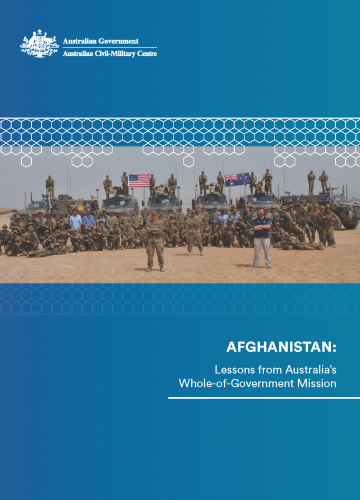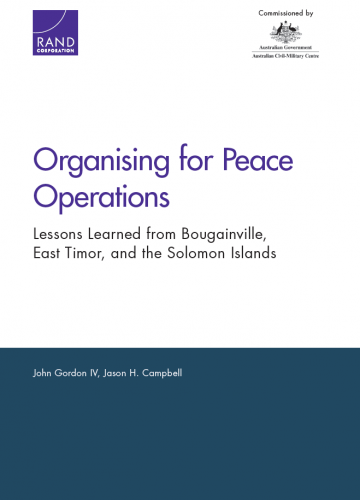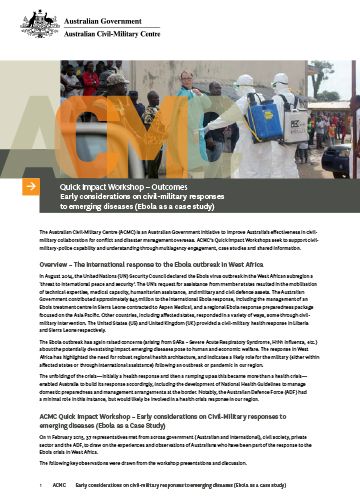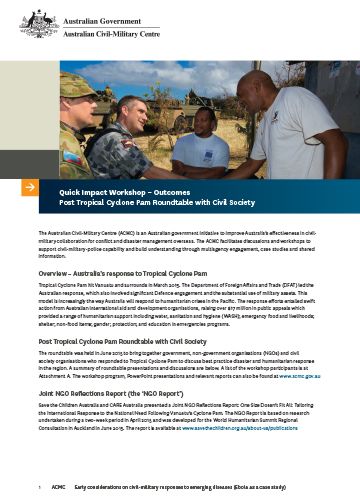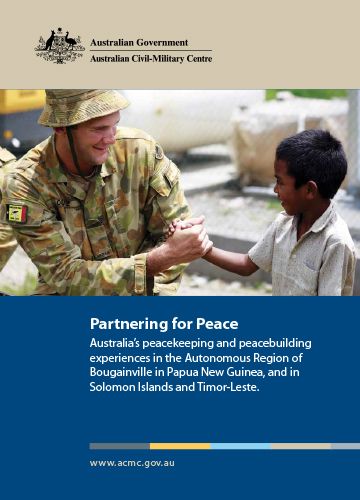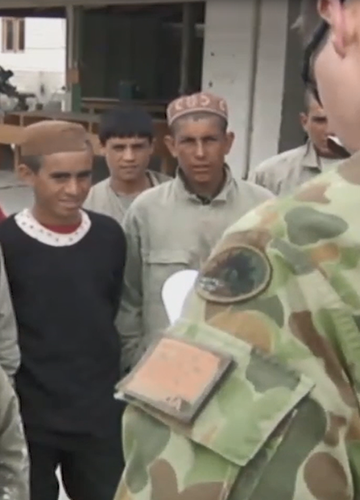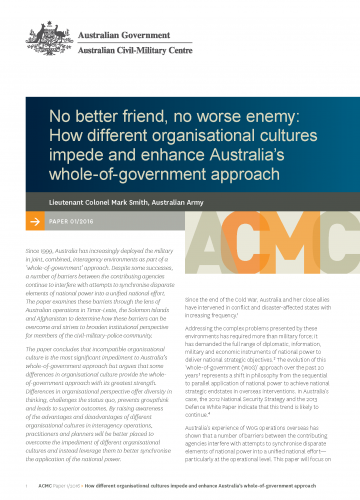Learning from experience
Responses to catastrophic disasters and complex security challenges in the Indo-Pacific region require a coordinated, joined-up response. A response that draws on broad-ranging civil-military-police expertise from across the government, non-government and private sectors.
To deliver effective civil-military-police responses we need to continual evolve and improve cross-agency coordination. Evaluating and learning from how we work together during crises ensures we are continuously improving and strengthening Australia’s capacity to respond to offshore crises.
ACMC’s Lessons and Evaluation program supports the development of an open culture of self-assessment and self-improvement, focused on cross-agency decision making, coordination and implementation.
ACMC works with Australian and international stakeholders to evaluate civil-military-police cooperation and identify areas of good practice and potential improvement for preparedness, planning, decision making and response to international conflicts and disasters.
Lessons and Evaluation has four different focus areas:
- Reviews of Australia’s whole-of-government responses to complex and/or extra-ordinary crises. These reviews focus on complex responses that did not sit neatly with regular crisis management arrangements and are conducted by expert staff and eminent subject matter.
- Commissioned Reviews that examine historical crises and are conducted by research institutions and think tanks.
- Reviews of catastrophic disasters and humanitarian emergencies that require a large civil-military-police response. These workshops occur soon after a response and bring together the policy makers and practitioners involved from all key sectors. Workshops are tailored to suit the nature of the crisis, the response architecture used and agency requirements.
- Reviews of civil-military-police exercises where the ACMC provides evaluation expertise to either lead or support evaluation of civil-military-police objectives, after action reviews, and assessments of how exercises build cross-agency capability.
Australia's experience on operations across Asia and the Pacific, and globally have provided some key lessons on building effective civil-military-police partnerships and delivering a joined-up response, across five broad themes:
- Strengthen Coordination by involving all agencies from the beginning, developing guidelines that define roles, responsibilities and working relationships and invest in co-equal civil-military leadership;
- Operationalise Cross-Cutting Themes by applying a gender perspective, implementing protection of civilians strategies and understanding the cultural context;
- Plan Together by identifying interfaces and opportunities for coordination across civilian, military and police actors, coupled with a respect and appreciation of different planning approaches;
- Share Information by prioritising the ‘need to share’ over the 'need to know’ and developing protocols and procedures for civil-military-police communications management and information sharing;
- Build Partnerships by investing in cross-agency exercises, training and exchanges to reinforce experience in successful civil-military-police partnerships from recent responses and strengthen cross-agency decision-making, coordination, planning and implementation.


